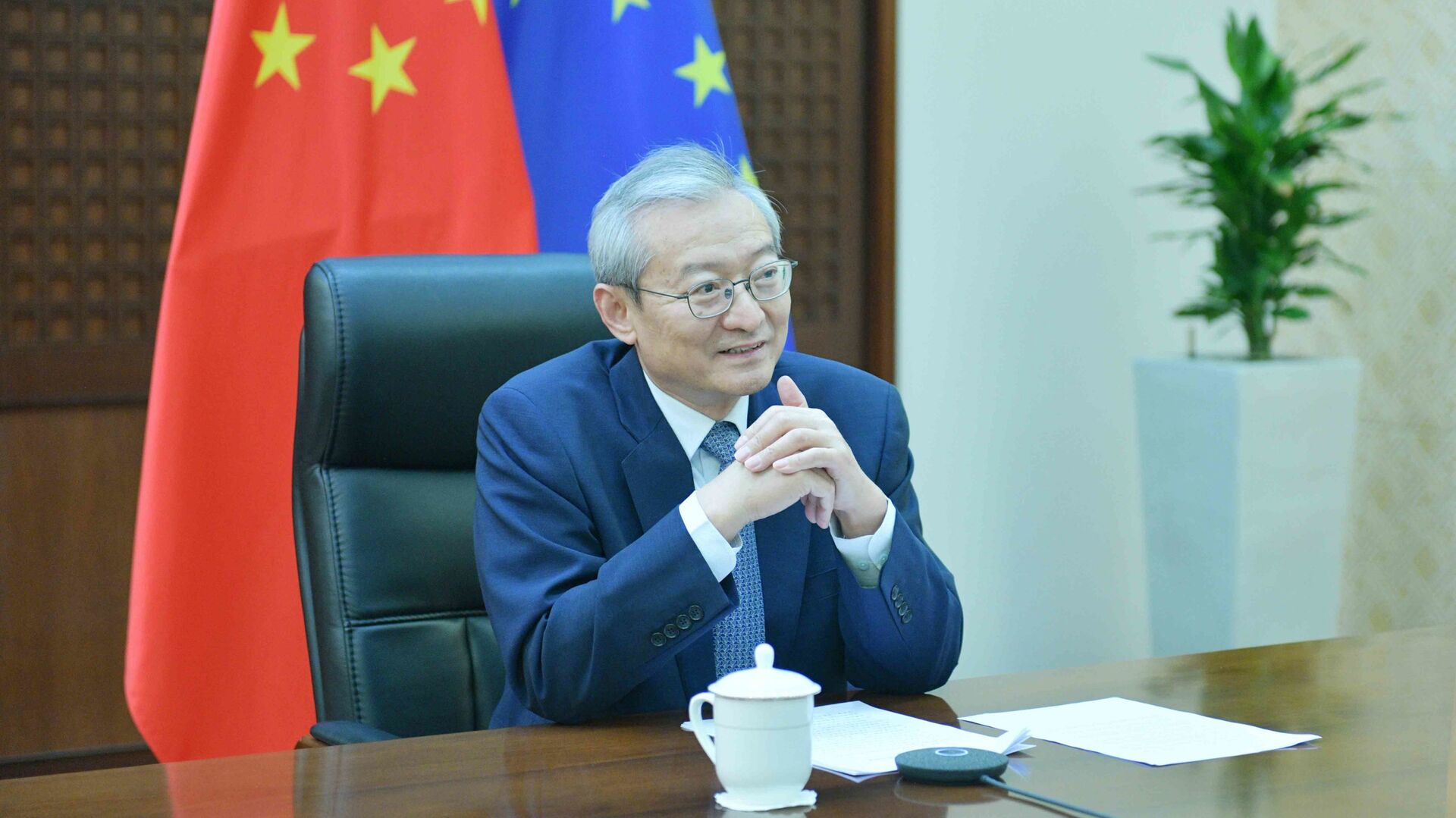“Sanctions based on lies could be interpreted as deliberately undermining China’s security and development interests,” Chinese Ambassador to the EU Zhang Ming said Tuesday in an online event at the European Policy Center, a Brussels-based think tank. He promised “resolute but moderate” countermeasures.
“We want dialogue, not confrontation. We ask the EU side to think twice. If some insist on confrontation, we will not back down as we have no options other than fulfilling our responsibilities to the people in our country.”
Earlier on Wednesday, two EU diplomats told Reuters the 27-nation bloc had decided on sanctions against 11 Chinese diplomats for “serious human rights violations and abuses” in China’s Xinjiang Autonomous Region, a western province in which the US and several other nations have accused Beijing of persecuting Muslim minorities.
According to the South China Morning Post, the sanctions include travel restrictions and asset seizure and will be discussed at a ministerial meeting on March 22 before a final decision is made.
They are the first sanctions the EU has brought against China since 1989, when the Chinese government was accused of suppressing free speech after it fended off an attempted insurrection in Beijing by right-wing forces in the Communist Party of China.
Last month, the Netherlands became the first European nation to call the situation in Xinjiang a “genocide” of the Uyghur ethnic group, following a similar declaration by the United States in January.
US Secretary of State Antony Blinken has promised steady pressure on Beijing for the Xinjiang situation.
Along with national security adviser Jake Sullivan, Blinken will meet with Yang Jiechi, the Communist Party of China’s foreign affairs chief, and Chinese State Councilor and Foreign Minister Wang Yi, in Alaska later this week for a 2+2 summit. However, Blinken has made clear the US doesn’t see it as the beginning of a dialogue, even though Washington extended the invitation.
"If they have nothing to hide, show it to us, show the world,” Blinken said last week. However, just such an initiative was in the works before the EU’s declaration. Zhang said China was in negotiations with a group of EU member states’ ambassadors to visit Xinjiang in the interests of dispelling claims that upwards of one million Uyghurs have been placed in re-education camps that force their assimilation into Han Chinese culture. He also said Beijing has repeatedly invited the UN High Commissioner on Human Rights to visit Xinjiang.
China has pushed back on the accusations, saying the institutions are voluntary vocational centers set up in accordance with the United Nations’ Plan of Action to Prevent Violent Extremism guidelines in response to the rise of Muslim separatist groups that have been responsible for a string of deadly terrorist attacks, including a massacre in the capital of Urumqi in 2009 in which 197 people were killed and another 1,700 wounded, nearly all of whom were Han Chinese. Separate journalist investigations have revealed the foundations of the claims of anti-Uyghur repression derive from a handful of unreliable sources associated with far-right anti-communist groups.
It’s unclear what effect the imposition of sanctions will have on the mission, or the Chinese government’s decision to bar the delegation from meeting with a requested individual who had been convicted under Chinese law.
“Almost everything has been arranged,” Zhang said. “But I’m so sorry that the EU mission in Beijing raised an unacceptable request, so that is not acceptable. But anyway Xinjiang is open, open for European ambassadors, open for foreign diplomats, journalists, and tourists, open to anyone.”
Zhang called the people who spread such accusations “China haters,” suggesting they were doing so for political gain.
The diplomat also warned Brussels against attempting to link the December Comprehensive Agreement on Investment with human rights issues, saying that “economic issues should not be politicized.”
The landmark deal will remove barriers to EU companies investing on the Chinese mainland, opening the door for the automobile and electronics industries, among others. This comes in the wake of China passing the United States last year to become the EU’s largest trading partner.


